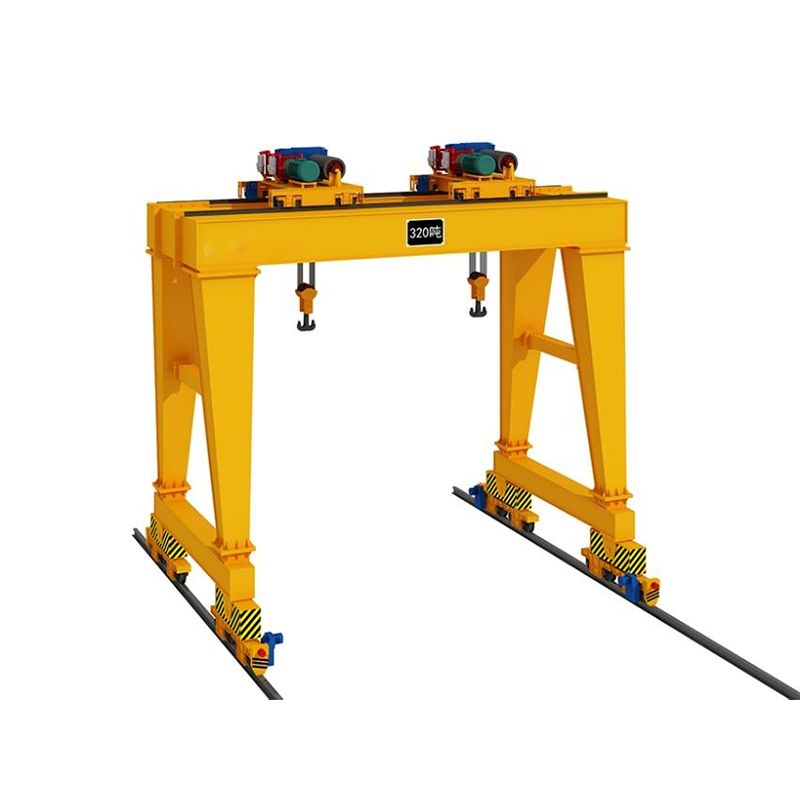How Can an Industry Crane Improve Efficiency and Safety in Industrial Operations?
2025-02-18
An industry crane is a type of heavy-duty lifting equipment used to move materials, goods, and equipment in industrial settings. These cranes come in various types and sizes, from overhead cranes to mobile cranes, each designed to handle different lifting capacities and tasks. Industry cranes play a crucial role in improving workflow, increasing productivity, and ensuring safety in environments such as factories, warehouses, and construction sites.

Why Should I Invest in an Industry Crane for My Business?
Investing in an industry crane offers several advantages:
- Improved Efficiency: Industry cranes allow for quick and easy transportation of heavy loads, reducing manual labor and speeding up operations.
- Enhanced Safety: By using cranes to lift heavy materials, the risk of injury to workers from lifting or moving heavy items is significantly reduced.
- Versatility: Cranes can be used for various tasks such as lifting, stacking, and transporting materials, making them highly versatile for different industries.
- Cost-Effective: Though the initial investment may seem high, the long-term benefits of increased efficiency and reduced labor costs make industry cranes a cost-effective solution.
With these advantages, industry cranes contribute to smoother operations and a safer work environment.
What Are the Different Types of Industry Cranes?
There are several types of industry cranes, each designed for specific tasks:
- Overhead Cranes: These cranes are installed on tracks above the working area and are commonly used in factories and warehouses for moving heavy loads.
- Mobile Cranes: These cranes are mounted on trucks or wheels, providing flexibility and mobility for construction and outdoor projects.
- Tower Cranes: Often used in construction, tower cranes are tall cranes designed for lifting heavy materials to great heights.
- Gantry Cranes: These cranes are similar to overhead cranes but are supported by legs instead of being mounted on a ceiling, making them ideal for outdoor use.
The choice of crane depends on the specific needs of the operation and the space available.
How Do Industry Cranes Improve Workplace Safety?
Industry cranes play a vital role in improving safety at the workplace:
- Reducing Manual Lifting: Cranes help eliminate the need for workers to lift heavy objects, reducing the risk of strain, sprains, and injuries.
- Precise Handling: Cranes allow for more precise placement of heavy materials, preventing accidents that may occur when items are moved manually.
- Enhanced Load Control: Cranes are equipped with safety mechanisms to ensure the safe handling and lifting of materials, such as overload protection and load sensors.
- Preventing Workplace Accidents: By automating the lifting and moving process, cranes minimize the risk of accidents caused by human error, helping to maintain a safer work environment.
Using cranes effectively not only protects workers but also helps to maintain compliance with safety regulations.
What Are the Key Features to Look for in an Industry Crane?
When choosing an industry crane, there are several important features to consider:
- Load Capacity: Ensure that the crane can handle the maximum weight of the materials or equipment you plan to lift.
- Reach and Height: The crane should have sufficient reach and lifting height to access hard-to-reach areas in your facility.
- Control Systems: Look for cranes with user-friendly controls that allow operators to safely and efficiently manage the lifting process.
- Durability: Industry cranes are built for heavy-duty use, so choose one made from durable materials that can withstand the demands of your operations.
Selecting a crane with the right features ensures that it meets your operational needs and performs reliably.
Where Can I Buy a Reliable Industry Crane?
If you're looking for a high-quality industry crane for your business, visit our website at www.fuyaolaivalve.com. We offer a wide range of industrial cranes that provide exceptional performance and safety. Explore our products and place your order today!



